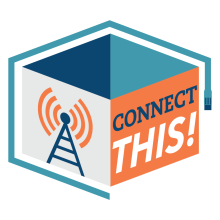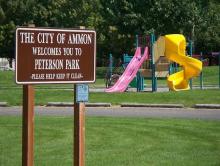For communities looking to improve Internet access for their citizens but that might be wary of becoming full-fledged Internet Service Providers (ISPs) themselves, open access networks offer a practical model for the future. Like roads, open access networks serve as publicly owned byways that telecommunications providers can then lease bandwidth on and offer a wide array of information services. They ensure competition, provide local control of underlying infrastructure, and lead to economic growth.
This week on the podcast Christopher speaks with Jeff Christensen, President of EntryPoint Networks, a consulting and software company working with communities around the country (including Ammon, Idaho) on open access networks. Jeff shares with Christopher what’s been happening recently, including some of the software upgrades EntryPoint has developed over the last year and the impact they’ll have both for administrators and users moving forward.
Christopher and Jeff then dig into the future of state telecommunications policy, and the vision that communities need to have to confront the realities of existing cable and telecom monopolies around the country. They talk about the potential of government policies that promote competition rather than restrain it, and the possibilities for network innovation if we were to reframe how we think about Internet access in terms of having separate infrastructure and service components. Finally, they spend some time discussing practical steps communities can take, including defining the problem and then making low-interest loans to build open access fiber networks in their regions.
If you’re interested in learning more about open access networks, we break down basic models, concepts, and advantages. Or, listen to Jeff’s TedX talks, The Internet Disruption Every City Needs and Modern Networks, Innovation, and Cities or read his recent Medium post, "We Need Our Internet Access Networks to Be Something They Are Not."
This show is 41 minutes long and can be played on this page or via Apple Podcasts or the tool of your choice using this feed.
Transcript below.
We want your feedback and suggestions for the show-please e-mail us or leave a comment below.
Listen to other episodes here or view all episodes in our index. See other podcasts from the Institute for Local Self-Reliance here.
Thanks to Arne Huseby for the music. The song is Warm Duck Shuffle and is licensed under a Creative Commons Attribution (3.0) license.




